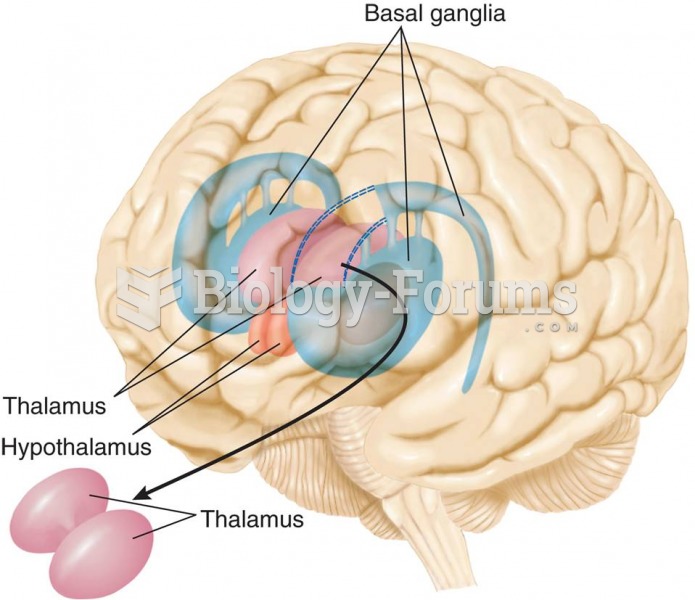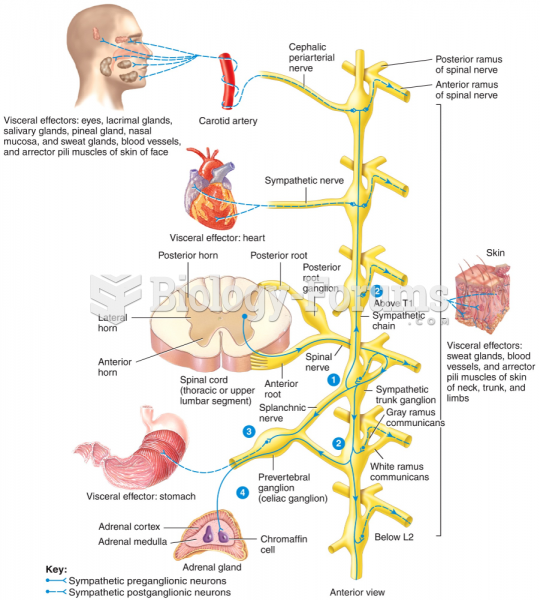|
|
|
Persons who overdose with cardiac glycosides have a better chance of overall survival if they can survive the first 24 hours after the overdose.
Increased intake of vitamin D has been shown to reduce fractures up to 25% in older people.
The senior population grows every year. Seniors older than 65 years of age now comprise more than 13% of the total population. However, women outlive men. In the 85-and-over age group, there are only 45 men to every 100 women.
A strange skin disease referred to as Morgellons has occurred in the southern United States and in California. Symptoms include slowly healing sores, joint pain, persistent fatigue, and a sensation of things crawling through the skin. Another symptom is strange-looking, threadlike extrusions coming out of the skin.
The immune system needs 9.5 hours of sleep in total darkness to recharge completely.
 Teaching women about the safety of drug use during pregnancy is an essential component of nursing ...
Teaching women about the safety of drug use during pregnancy is an essential component of nursing ...
 Receptors in the autonomic nervous system: (a) Sympathetic pathway: Ach is released at the ganglia ...
Receptors in the autonomic nervous system: (a) Sympathetic pathway: Ach is released at the ganglia ...





